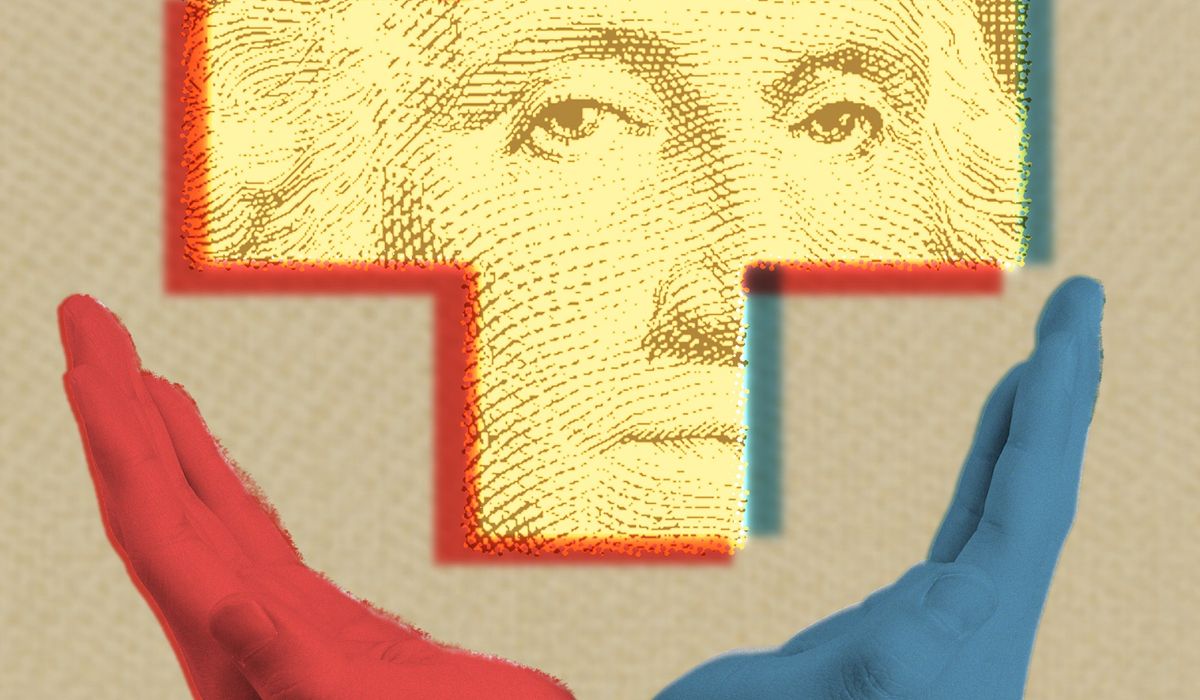OPINION:
Over the past decade, access to convenient, affordable health care has declined. Medical costs have doubled, and access to care has shrunk as health insurance companies, looking for ways to cut costs, have moved to cover fewer services and include fewer of the best doctors and hospitals in their networks. This alarming trend affects all Americans, but it falls hardest on people with low incomes and expensive chronic medical conditions.
Happily, relief is in sight for many of these struggling Americans, thanks to a thoughtful new bill introduced by two Florida Republicans in Congress, Reps. Greg Steube and Kat Cammack. Their proposed ACCESS Act would enhance access to quality, affordable health care for up to 5 million low-income adults and their families by giving them a personal health care option — bridging the gap between the services and providers they need and what their insurance covers.
This bill would establish tax-free health savings accounts for those who are eligible for cost-sharing reductions under the Affordable Care Act. These people make less than about $13,600 a year or, in a household of four, less than $30,000 a year. Their subsidy would go directly into their HSA account, and they could use this money to pay for medical visits and procedures that might otherwise be too costly or that their health insurance does not cover — broadening their access to necessary care. The money could be used only for legitimate health care expenses. What they did not spend would remain available to them for future medical needs and emergencies, even after they leave the rolls.
This expanded access is more than just a safety net for families to cover health care expenses between jobs or to pay for things their health plan doesn’t cover. It’s also a crucial step toward providing Americans with more individualized health care choices, in much the same way Florida’s newly expanded school choice program gives parents the means to secure the best education options for their children.
Providing financial help in this individualized, personalized way will empower enrollees, give them greater choice and control over their care, and enable them to obtain services and providers that best meet their preferences and needs. It will encourage them to take greater responsibility for their health and shop for value. That will reduce costs for all of us.
In addition, it will reduce health care disparities by giving lower-income Americans the access to high-quality, private care that wealthier Americans enjoy.
While this proposal would be most beneficial to the vulnerable, it’s also a positive for taxpayers because it would make the current inefficient and ineffective health insurance subsidy more efficient, saving taxpayers an estimated $29 billion over 10 years.
And there’s one more benefit: The ACCESS Act would increase the number of Americans who are allowed to save and pay for health care tax-free. Currently, only about 1 in 10 Americans have access to a health savings account, thanks to restrictive government rules. Every American should have that option.
In short, the ACCESS Act is an effective way to give millions of lower-income patients the high-quality care they need, with the control they want from the providers they trust — while helping reduce health care costs for all of us. Like Florida’s new school choice reform, it does this by funding patients, not systems.
Made in Florida, this innovative, fiscally responsible solution is something all Americans can get behind.
• Skylar Zander is Florida state director of Americans for Prosperity.





More Stories
Ashwagandha’s Impact on Cortisol Levels in Stressed People
Health care cyberattack ‘likely one of the worst,’ expert says
Accessing Medicinal Cannabis in the UK: A Comprehensive Guide